ASTMH 2019 Annual meeting
November 20 – 24, 2019
National Harbor, Maryland, USA
Visit our booth (200/202) to discuss the latest in clinical research and sustaining research capacity in resource-limited settings. Experts from FHI Clinical as well as our honored guests from Côte d’Ivoire, Liberia and the Democratic Republic of the Congo will be available to share their insights.
Our Honored Guests
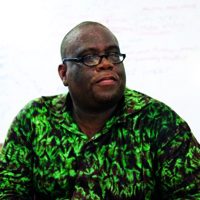
Mosoka P. Fallah, PhD, MPH, MA
Wed, Nov 20 7:00 – 9:00 pm
Thurs, Nov 21 9:30 – 10:30 am
Fri, Nov 22 12:00 – 1:45 pm
Within 20 months after the devastating Ebola crisis in his native Liberia, Mosoka P. Fallah, PhD, MPH, MA, cofounded the National Public Health Institute of Liberia (NPHIL). He also serves as the Deputy Director for Technical Services at NPHIL, as appointed by Liberian President Ellen Johnson-Sirleaf. In this capacity, he oversees the Divisions of Infectious Disease Epidemiology, National Public Health Laboratory, and Medical and Public Health Research, among others. He was also recently appointed as a part-time faculty member in Harvard Medical School’s Department of Social Medicine. He previously served as Chairman of the Department of Biochemistry at the A.M. Dogliotti College of Medicine, University of Liberia. His extensive experience spans the humanitarian crises that occurred during the civil war in Liberia, during which he worked with Doctors Without Borders (MSF). He has contributed his more than ten years’ experience in development work to consultancies with USAID, CHEMONICS, the President Malaria Initiative (PMI), the World Health Organization, the United Nations Development Program (UNDP) and Action Against Hunger.
He completed his PhD at the University of Kentucky, during which time he founded Refuge Place International to address the very high maternal and neonatal death rates in Liberia. Then, he studied Global Health, with a concentration in Infectious Disease Epidemiology, at the Harvard Chan School of Public Health. In 2013, he returned to Liberia to focus on the issue of maternal and child health in a country that was ravaged by civil war and trying to rebuild its health system. When the Ebola outbreak occurred, his recently opened refuge center in the Chicken Factory slum of Liberia had to be closed. Leveraging his skills in epidemiology and program management, Dr Fallah led the Ebola response, launching an active case finding system that became the model for epidemic control. Having grown up in Monrovia, he was able to build trust within the communities during the outbreak. For his work in the Ebola response, he was named one of Time Magazine’s Persons of the Year in 2014.
Dr. Fallah is currently the principal investigator in Liberia of a 5-year NIH-sponsored Ebola natural history study involving the largest cohort of Ebola survivors in the world. He has worked extensively with the Ministry of Health of Liberia, medical centers and other nonprofit organizations to jump start this flagship program in Liberia.
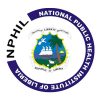

Nsengi Ntamabyaliro, MD, MSc
Wed, Nov 20 7:00 – 9:00 pm
Thurs, Nov 21 3:15 – 4:15 pm
Fri, Nov 22 9:30 – 10:30 am
Sat, Nov 23 12:00 – 2:30 pm
Nsengi Ntamabyaliro, MD, MSc, specializes in pharmacoepidemiology and pharmacovigilance. He is currently the head of the Division of Training and Supervision in the Unit of Clinical Pharmacology and Pharmacovigilance (UPC-PV) at the University of Kinshasa in the Democratic Republic of the Congo. This department is an accredited DRC National Pharmacovigilance Centre. Since 2007 and following his clinical practice in surgery and internal medicine, Dr. Ntamabyaliro has been involved in different roles in many clinical trials: supervisor, site coordinator, co-investigator and principal investigator. His research has focused primarily on malaria, but has also included trypanosomiasis, monkeypox and Ebola. Dr. Ntamabyaliro is currently part of the Pharmacovigilance Working group in a randomized clinical trial of anti-Ebola drugs in the DRC.
FHI Clinical has worked with Dr. Ntamabyaliro on Phase III and IV trials since 2007, at which time there was a focus on research capacity development in the country. Based on this history, FHI Clinical and Dr. Ntamabyaliro are currently collaborating with the UPC-PV and the Kinshasa School of Public Health to identify opportunities to keep the research team active and sustain their research capacity.

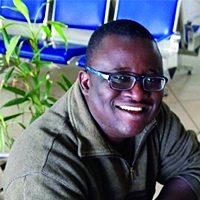
Offianan Andre Toure, MD, PhD
Wed, Nov 20 7:00 – 9:00 pm
Thurs, Nov 21 12:00 – 1:45 pm
Fri, Nov 22 3:15 – 4:15 pm
Sat, Nov 23 9:30 – 10:30 am
Offianan Andre Toure, MD, PhD, is currently the Head of the Department of Parasitology & Mycology at the Institut Pasteur of Côte d’Ivoire and also serves as the Chairman of the Parasitology & Mycology Society of Côte d’Ivoire. Originally from Côte d’Ivoire, he received his Ph.D. in parasitology and mycology and completed his Doctorate in Medicine at the University of Felix Houphouet Boigny of Côte d’Ivoire. Dr. Toure’s clinical and research interests include malaria, immune responses to malaria parasites, molecular epidemiology, placental malaria, schistosomiasis, cysticercosis and helminthiasis.
FHI Clinical has worked with Dr. Toure on clinical trials for uncomplicated malaria since 2007 and continue to collaborate to plan for future trials.

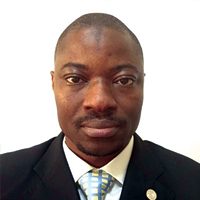
Mahamoud Sama Cherif, MD, PhD
Mahamoud Sama Cherif, MD, PhD, is currently the Clinical Research Manager of the National Center for Training and Research in Rural Health in Mafèrinyah, Guinea. Prior to returning to Guinea, he completed a postdoctoral fellowship in clinical research at Oxford University in England. For this, he participated in the Infectious Diseases Data Observatory (IDDO) as a European & Developing Countries Clinical Trials Partnership (EDCTP) Research and Training in Tropical Diseases (TDR) Clinical Research and Development Fellow. Dr. Cherif’s research focused on an Ebola data platform, particularly on the analysis of the likelihood of unfavorable outcomes in a pooled EVD patient sample based on patient characteristics, disease-specific characteristics, or other conditions (comorbidity, pregnancy etc.). The aim was to provide recommendations for the efficient management of future EVD outbreaks. He also served as an assistant professor at both the Nagasaki University Institute of Tropical Medicine in Japan and the Department of Medicine at the University Gamal Abdel Nasser in Conakry (UGANC), Guinea. At Nagasaki University, he gained experience and skills in basic and translational research. Dr. Cherif’s clinical experience includes positions as a pediatrician at Donka National Hospital in Conakry and a pediatric assistant at UGANC.
Dr. Cherif holds a PhD in Medical Sciences from the Nagasaki University School of Biomedical Sciences in Japan and has a DES in Pediatrics from the UGANC Faculty of Medicine Pharmacy Odonto-Stomatology (FMPOS). He also obtained a Certificate in Health Care and Health Systems Management at the Free University of Brussels School of Public Health in Belgium.
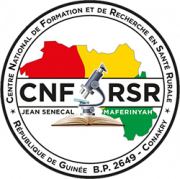
The National Center for Training and Research in Rural Health (CNFRSR) “Jean SENECAL” of Mafèrinyah supports the Ministry of Health’s programs for evidence-based policymaking and health systems design through high-quality biomedical research.

